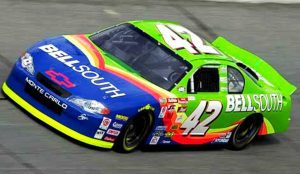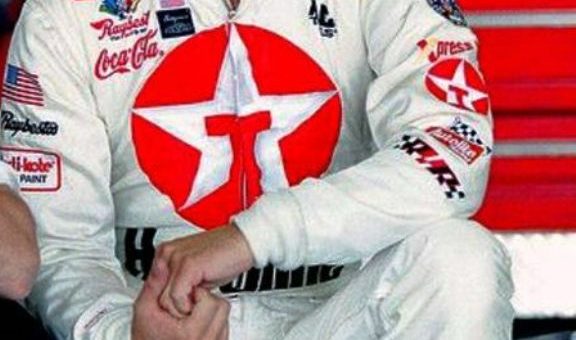“He’s one of the best I ever ran against,” Tony Stewart said about his friend, competitor and sometimes antagonist Kenny Irwin Jr. “If Kenny would’ve lived, he would’ve at least won a NASCAR championship, if not several.
“Unfortunately, we lost him too soon.”
Irwin died on July 7, 2000, during a NASCAR Cup Series practice session at New Hampshire Motor Speedway. Stewart won the New England 300 that weekend and dedicated the victory to his fallen friend.
Born Aug. 5, 1969, Irwin began driving quarter midgets in the third grade and continued racing all through his school years. By the time he was a senior at Indianapolis’ Lawrence North High School, where he played varsity soccer, he’d earned an SCCA competition license.

Irwin competed with the SCCA in the GT1 category, driving a turbocharged Buick Grand National, and eventually moved to the IMSA American Challenge stock car series, all while still a teenager.
Growing up in Indiana, Irwin was bombarded with open-wheel racing coverage and soon transitioned to USAC competition. In less than four years with the organization, he recorded 23 feature victories.
Seven of those came in the national sprint car series, where he was named rookie of the year in 1993, and he notched six wins in the big USAC Silver Crown cars. In the USAC national midget division, Irwin won eight main events and claimed the 1996 national championship.
That winning ability caught the attention of NASCAR team owners who were scouring the USAC ranks in search of the next Jeff Gordon. Irwin entered NASCAR through the Craftsman Truck Series at Phoenix Raceway in 1996. He earned the pole at Richmond Raceway in only his second race and ran part time that season with promising results.
In 1997, he turned to the trucks full time, recording two wins, seven top-five finishes, 10 top-10 results and securing rookie-of-the-year honors. It was also 1997 when he made his first Cup Series start, qualifying second at Richmond for David Blair’s team.
In 1998, Robert Yates selected Irwin to replace Ernie Irvan in the famed No. 28 Havoline Ford Cup Series machine. He started the year strong, winning the Daytona ARCA race in a Yates car and completed the Cup Series season with a pole position and four top-10 finishes. He won the rookie-of-the-year award.
The following year, still with Yates Racing, Irwin earned two more poles, raced to a competitive third place behind Jeff Gordon and Dale Earnhardt in the Daytona 500 and finished with eight top-10 runs.
It was a solid beginning for the NASCAR newcomer, but for 2000 Irwin separated from Yates Racing and pinned his future with a new manufacturer and team, driving the No. 42 Chevrolet of Felix Sabates’ Team SABCO Racing.
As is often the case with new teams, initial success came slowly. But there were bright spots, a strong fourth-place run at Talladega (Ala.) Superspeedway among them. By the time the New Hampshire race came about in July, the team’s future appeared positive.
But it wasn’t in the cards as a crash during practice ended Irwin’s life.
In his too-short career, Irwin followed his dreams and fought to the very pinnacle of racing. More important, perhaps, than what he accomplished on the track are those things he did away from the track that should be most remembered.
Many who attended Irwin’s funeral shared with his parents, Kenny Sr. and Reva, his many charitable acts. Stories of surprise hospital visits, paying hospital bills in the thousands of dollars and of underprivileged, at-risk children sent to camp at his expense.
“We knew nothing about any of this,” insisted his father. “It was only through what people told us at his funeral, and then through cards and letters, emails and phone calls in the days after his accident that we realized the impact our son had on people’s lives.”
Because of what they heard, Irwin’s parents founded the Kenny Irwin Jr. Memorial Foundation and the Dare to Dream Camp that for years perpetuated the memory of a great racer and his legacy of compassion.
This story appeared in the August 30, 2023 edition of the SPEED SPORT Insider.

